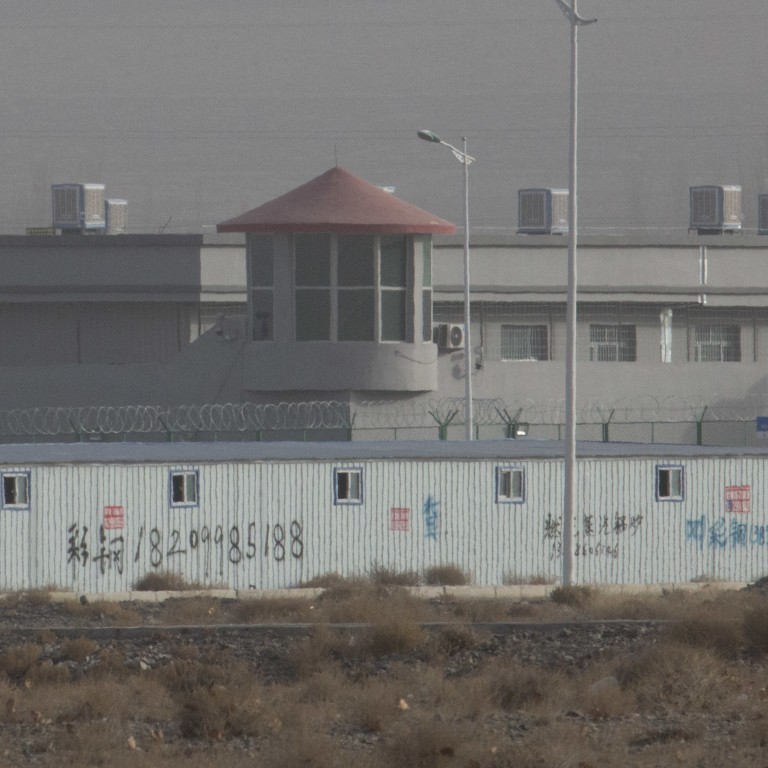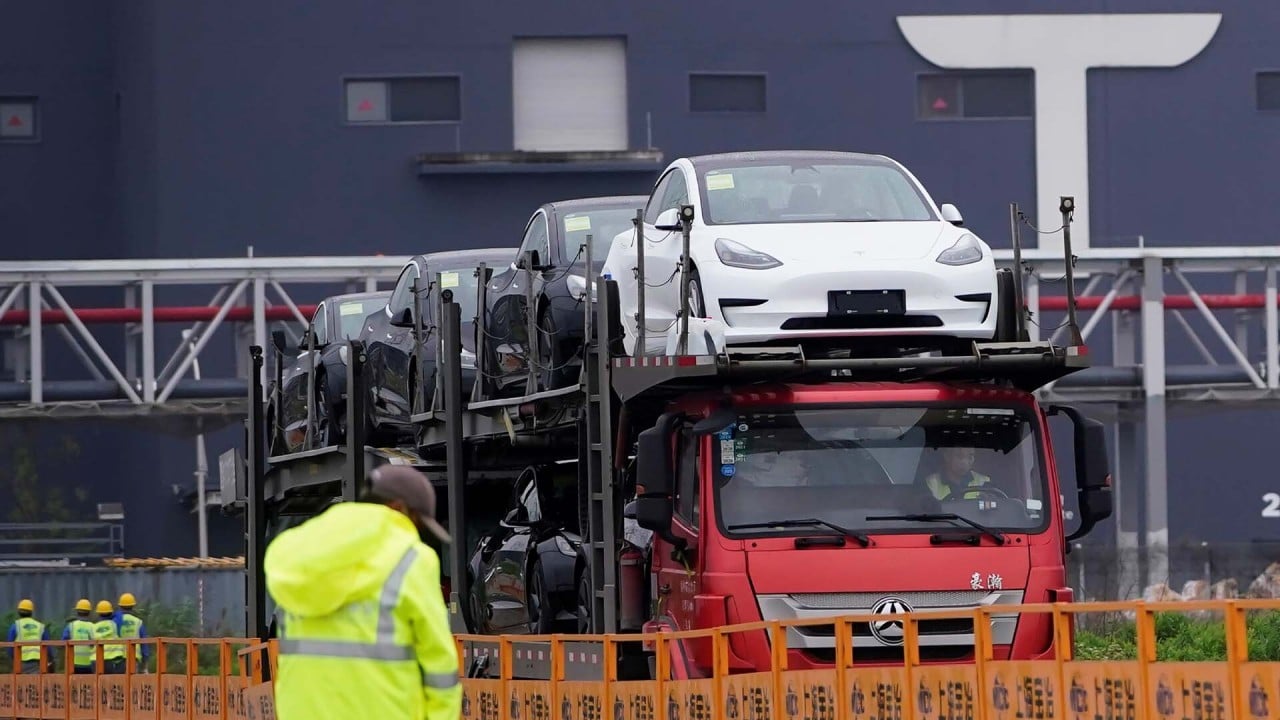
World Bank accused of ‘funding campaign of repression’ in Xinjiang
- Report finds several clients of International Finance Corporation ‘active participants’ in campaign accused of rights abuses and environmental destruction
- Researchers tell of firms that specify ‘Han-only’ job applicants or take part in labour schemes known for delivering military and ideological training to Uygurs
European politicians echoed these demands.
A letter signed by 20 European and North American lawmakers, sent to the World Bank president David Malpass and coordinated by the Inter-Parliamentary Alliance on China, a pan-national pressure group, said the “World Bank must have no part in the financing of these abuses”.
“We, as parliamentarians from across the world, call on the World Bank and the IFC to divest from companies perpetrating human rights violations in the [Xinjiang Uygur autonomous region],” read the letter.
Xinjiang, a vast territory on China’s northwestern flank, has become a huge geopolitical issue in recent years.
The US government has accused China of committing “genocide” in the region, outlawed many goods produced in the region and cited it as the motive for a diplomatic boycott of the Beijing Winter Olympics.
These claims have been backed by parliaments in countries including Britain, France, Belgium and the Netherlands.
Labour practices in China’s Xinjiang of ‘deep concern’, says UN agency
The Chinese government strenuously denies the accusations. When asked to comment on the report, the Chinese embassy in Washington directed the South China Morning Post to comments made by Xu Guixiang, spokesman for the Xinjiang Uygur autonomous region government, in January.
“The so-called forced labour in Xinjiang is a completely pseudo-proposition. In fact, it is a ruse made by the United States and Western anti-China forces to intervene in Xinjiang affairs and China’s internal affairs, and implement the plan to restrict China by Xinjiang,” Xu said.
He added that “Xinjiang has been following the spirit of the Charter of the International Labour Organization and relevant conventions, strictly implementing laws and regulations”.
An IFC spokesperson said the organisation “takes allegations of forced labour and poor treatment of vulnerable groups very seriously”, but did not respond directly to questions about its commitments in Xinjiang.
While Covid-19 has made gaining access to projects on the ground more difficult, the spokesperson said, the IFC “has dedicated more resources to supervising the companies we work with regarding adherence to our ESG standards” – referring to environmental, social and governance factors included in financial analyses.
“These standards are legally binding, include protections for workers, communities, and the environment, and expressly prohibit discrimination and the use of forced labour,” the spokesperson said.
The 69-page report is based on Chinese state media and government reports, satellite imagery of IFC’s client operations, IFC project documentation, public reports and corporate disclosures.
In 2019, the IFC lent US$40 million to Chenguang Biotech Group, a manufacturer and exporter of plant-based extracts and additives with a host of American clients, to support its ongoing working capital requirements over six years.
Researchers found job advertisements for administrative positions in Chenguang’s wholly-owned subsidiary, Xinjiang Chenxi Pepper Industry Co, were required to be of “Han ethnicity”.
The company built facilities in Yarkant, a county in southern Xinjiang, “with the specific intent to ‘recruit poor labourers first’ through state-sponsored poverty alleviation and labour transfer schemes”, the report read.
Such labour recruitment programmes were “typically state sponsored and coercive assignments of impoverished people in low-skill/low-wage jobs, often against their will”, they added.
The Chinese government says they are vehicles for poverty alleviation.
Camel Group Co, one of China’s largest battery manufacturers and a supplier to Volkswagen, Ford, Audi and General Motors, borrowed US$81 million from the IFC and its private sector lending partners in 2019 to build recycling plants and upgrade existing facilities in Xinjiang.
Researchers found a “major gap in reporting” on the IFC’s strict environmental standards pertaining to the facilities, with due diligence failing to focus on “the risks specific to battery breaking or secondary smelting”.
Camel Group has publicly confirmed it took part in “poverty alleviation” programmes in Xinjiang, including controversial labour transfer schemes.
Researchers found that during such schemes, Uygur workers recruited by Camel received “military and ideological training, and they were required to sing patriotic songs and learn the Chinese language”.
Such activities were billed as “closed pre-job training”, which “indicates that the participants were not allowed to come and go freely from the training”, they wrote.
Similar allegations are made about a US$175 million IFC funding package between 2014 and 2016 for fertiliser and metals producer Century Sunshine Group Holdings and almost US$200 million in funding in 2019 and 2020 for Jointown Pharmaceutical Group, a manufacturer of medical equipment and PPE.
US money or Chinese public’s fury: the stark choice for China’s apparel firms
Jointown, for example, has publicly advertised its recruitment of more than 200 workers for an industrial facility in Urumqi, the regional capital of Xinjiang, through state-sponsored labour transfer programmes from the region’s south.
“The Urumqi facility, partially financed with IFC’s 2019 loan, is in one of Urumqi’s largest prison districts. In the past 20 years, the region has transformed from an agricultural district to more than 150 hectares of prisons, detention facilities and internment camps,” the researchers wrote.
The IFC closed relationships with three other Chinese companies engaged in or sourcing from Xinjiang in 2021.
The report was jointly written with the Helena Kennedy Centre for International Justice at Sheffield Hallam University and NomoGaia, a non-profit research organisation that works to reduce human rights risks for businesses.
It also named the European Investment Bank, European Bank for Reconstruction and Development, Asian Development Bank, German Investment Corporation and Netherlands Development Finance Company as development finance institutions with exposure to problematic social, environmental and labour issues in Xinjiang.



